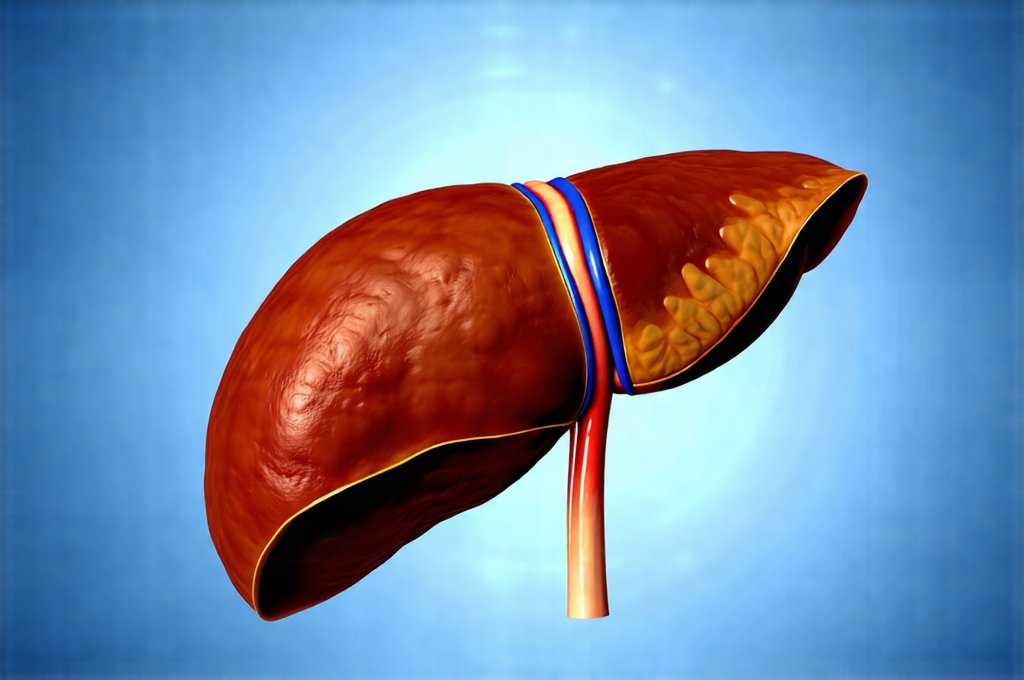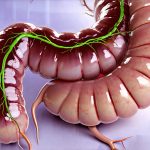The intricate relationship between our physical well-being and emotional state is often underestimated. We commonly attribute digestive discomfort – bloating, gas, cramping, and irregularity – solely to dietary choices or stress. However, beneath the surface lies a complex interplay between the liver’s function as a detoxification center and the gut’s sensitivity to toxins. When the liver becomes overwhelmed with processing an excess of toxins from sources like processed foods, environmental pollutants, and even natural metabolic byproducts, these undigested and unprocessed substances can significantly impact our digestive system, leading to a cascade of uncomfortable symptoms that many struggle to understand. It’s not merely about what we eat; it’s about the body’s ability to effectively process and eliminate what we consume and encounter.
The liver is arguably one of the most vital organs in the human body, performing over 500 essential functions. Among these, detoxification stands out as a cornerstone of its role. It acts as a filter, removing harmful substances from the bloodstream before they can wreak havoc on our cells. But this process isn’t passive; it requires a significant amount of energy and resources. When consistently bombarded with toxins exceeding its capacity, the liver struggles to keep up, leading to an accumulation that doesn’t just stay within the liver itself. These accumulated toxins often get redirected, impacting other systems—particularly the digestive system—and manifesting as noticeable discomfort. Understanding this fundamental connection is crucial for addressing chronic digestive issues and promoting overall health. Considering the impact of stress on digestion, it’s helpful to review the connection between stress and digestive discomfort as well.
The Liver’s Role in Detoxification & Digestive Impact
The detoxification process in the liver isn’t a single step but rather a multi-phase biochemical pathway. Phase 1 involves converting toxins into less harmful forms, often making them more reactive in the process. This is where antioxidants are vital, as they help neutralize these intermediate reactive compounds. Phase 2 then conjugates these substances with other molecules, making them water-soluble for excretion through bile or urine. When this system is overloaded – due to constant toxin exposure and/or insufficient nutritional support – toxins can linger longer, increasing oxidative stress and inflammation throughout the body. This systemic inflammation directly impacts gut health, disrupting the delicate balance of the microbiome and compromising digestive function.
A compromised liver detoxification process doesn’t just affect the gut biome; it influences bile production. Bile is essential for fat digestion and absorption, as well as for eliminating toxins through the intestines. When liver function declines, bile flow can become sluggish, leading to incomplete fat digestion and potential constipation. Furthermore, undigested fats provide a breeding ground for harmful bacteria in the gut, exacerbating bloating and gas. This creates a vicious cycle where impaired detoxification leads to digestive issues which further burden the liver with more toxins from bacterial overgrowth. It’s also important to consider the role of fasting and refeeding in digestive balance to support overall gut health.
The consequences of this overburdened system can vary widely depending on individual sensitivities and the types of toxins involved. Some individuals may experience chronic constipation, while others might suffer from frequent diarrhea or irritable bowel syndrome (IBS)-like symptoms. The common thread is a disruption in gut motility and microbiome balance directly linked to the liver’s inability to efficiently process and eliminate toxins. It’s important to note that these digestive symptoms aren’t necessarily indicative of a food intolerance but rather a sign that the body is struggling to cope with an overall toxic load.
Common Sources of Toxin Exposure & Digestive Consequences
Our modern lifestyle exposes us to a constant barrage of toxins, making it increasingly challenging for the liver to keep up. These sources are often categorized into internal and external factors. Internal toxins arise from normal metabolic processes – think waste products from digestion, cellular respiration, and hormone breakdown. However, the sheer volume of external toxins is significant:
- Processed Foods: Additives, preservatives, artificial flavors, and colors all require liver detoxification.
- Environmental Pollutants: Air pollution, pesticides in food & water, household cleaning chemicals, and plastic exposure (BPA, phthalates) contribute to the toxic load.
- Medications: Both prescription and over-the-counter drugs are processed by the liver and can accumulate over time.
- Alcohol: Even moderate alcohol consumption places a significant strain on the liver’s detoxification pathways.
The digestive consequences of these exposures are often subtle initially but can escalate into chronic issues. For example, exposure to pesticides has been linked to gut dysbiosis—an imbalance in the gut microbiome—which impairs nutrient absorption and weakens the immune system. Similarly, plasticizers like phthalates can disrupt hormone balance and contribute to leaky gut syndrome, a condition where the intestinal barrier becomes permeable, allowing toxins to enter the bloodstream and trigger inflammation. The cumulative effect of these exposures over time is a stressed liver struggling to protect our digestive health. Many individuals struggle with discerning finding the line between picky eating and digestive discomfort, which can exacerbate these issues.
Liver-Gut Connection & Inflammation
Inflammation plays a central role in the link between toxin buildup in the liver and digestive discomfort. When the liver is overwhelmed, it releases inflammatory cytokines – signaling molecules that promote immune response – into the bloodstream. These cytokines can travel throughout the body, including to the gut, where they disrupt the intestinal barrier function and contribute to chronic inflammation. This ongoing inflammation damages the lining of the intestines, leading to increased permeability (leaky gut) and a heightened sensitivity to food and environmental triggers.
A compromised intestinal barrier allows undigested food particles, toxins, and bacteria to leak into the bloodstream, further fueling systemic inflammation and exacerbating digestive symptoms. This creates a feedback loop: toxin buildup causes inflammation, which weakens the gut barrier, leading to more toxins entering the system and escalating inflammation. Furthermore, chronic inflammation can impair the production of digestive enzymes, hindering proper food breakdown and absorption, and ultimately resulting in bloating, gas, and other digestive complaints.
Supporting Liver Detoxification for Digestive Health
While complete elimination of toxin exposure isn’t always possible, we can significantly support the liver’s detoxification pathways through targeted lifestyle changes and nutritional interventions. One key strategy is prioritizing a diet rich in cruciferous vegetables (broccoli, cauliflower, kale), which contain compounds that enhance Phase 1 and Phase 2 detoxification processes. Additionally, incorporating foods rich in antioxidants – berries, green tea, turmeric – helps neutralize reactive intermediates produced during detoxification.
Another vital aspect is adequate hydration. Water is essential for flushing out toxins through the kidneys and supporting bile flow from the liver. Furthermore, minimizing exposure to known toxins—choosing organic foods when possible, using natural cleaning products, and reducing plastic consumption—can lessen the burden on the liver. Finally, incorporating supportive supplements like milk thistle (known for its hepatoprotective properties) or N-acetyl cysteine (NAC – a precursor to glutathione, a powerful antioxidant) may further enhance detoxification capacity, but should always be discussed with a healthcare professional before use. It’s also worth noting the role of magnesium in preventing digestive discomfort, as it plays a key role in many bodily functions.
The Role of Gut Microbiome in Detoxification
The gut microbiome is not merely a passive bystander in the detoxification process; it actively participates in breaking down and eliminating toxins. Certain beneficial bacteria possess enzymes that can neutralize harmful substances, while others help regulate bile flow and support intestinal barrier function. However, when the gut microbiome becomes imbalanced due to toxin exposure or poor dietary choices, its ability to detoxify is compromised.
Restoring a healthy gut microbiome through strategies like consuming probiotic-rich foods (yogurt, kefir, sauerkraut), incorporating prebiotic fibers (onions, garlic, bananas) to feed beneficial bacteria, and minimizing antibiotic use can significantly improve detoxification capacity. A diverse and thriving gut microbiome strengthens the intestinal barrier, reduces inflammation, and enhances the liver’s ability to eliminate toxins effectively. This holistic approach – addressing both liver function and gut health – is crucial for achieving long-term digestive comfort and overall well-being. It’s also important to be aware of the connection between physical inactivity and increased episodes of indigestion and nausea, as lifestyle choices impact gut health too. And remember, if you’re experiencing persistent digestive issues, consider understanding the connection between liver health and immunity to address potential underlying causes.


















